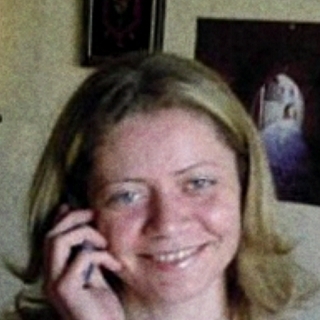The abduction of the prominent human rights activist, Razan Zaitouneh, and her husband, activist Wael Hamada, was met with unprecedented reactions from civil society actors and popular media. The kidnappers also abducted lawyer Nazem al-Hammadi and Samira al-Khalil, who had earlier been detained in regime prisons. Al-Khalil is the wife of the well-known Syrian oppositionist Yassin Haj Saleh. No one has claimed responsibility for the kidnapping, though witnesses in the area confirmed that an armed group stormed the office of the Violations Documentation Center (VDC), run by Zaitouneh, and took everyone there to an unknown location. Both the identity of the kidnappers and additional information on the motives remain unknown.
The city of Duma in the Eastern Ghouta area of Damascus woke up on Tuesday morning to the news of the kidnapping, which sparked a range of reactions among locals, activists and rebels. The common element between the reactions was their severe condemnation of the action and their demands for the activists’ immediate release.
Information related to the incident was scarce. A friend of Hamada mentioned that he want to their office at one o’clock in the morning because he had a meeting with Hamada hours earlier. Hamada didn’t show up and his friend couldn’t get in touch with him, which was unusual because the activists use satellite communications that remain open around the clock. When Hamada arrived on the scene, he found the door open, five computers missing, and everyone who would normally have been in the office gone. There was no evidence indicating vandalism or theft, and no money had been taken.
The time of the abduction is estimated to have been between 10 and 11 at night. At this time the besieged city lives in darkness, ever since the power stations were bombed a year ago by Assad’s forces, who continue to prevent repairs to the station from being made. So at that time of night, the city is like a dead city, with no lights illuminating the houses or the streets, and there are neither cars nor people out, which makes it, without a doubt, the perfect time for kidnapping.
As news of the kidnapping spread, statements denouncing the action quickly multiplied. Websites based inside and outside the city, including many Facebook pages of Syrian revolutionary groups, felt the ripple of criticism course through them. The Local Council described the actions it in its first released statements “shameful.” Phrases, labels, and posters colored the walls of mosques and schools. The Free Syrian Army office denounced the abductions and considers it a shame and a crime against the entire city.
The accusations and speculations about the identity of the perpetrators began circulating around different groups, with major battalions in the FSA, some of the “Islamic” battalions, and the regime intelligence apparatus not being excluded from consideration. Most of those battalions denied the accusations and defended themselves against the charges and the popular pressure. Leaders of the “Army of Islam,” a group with large battalions dominant in the area, asked, said “we helped her to enter the city ten months ago, how can we kidnap her now?” The Local Coordination Committees (LCCs), along with many other organizations, called upon the kidnappers to disclose the fate of the kidnapped and return them to their place of work immediately without any conditions. The LCCs also mentioned their efforts working with the VDC and the services they provide to the revolution of dignity and freedom.
Zaitouneh had previously received a “direct threat” that she described as coming from unknown sources, who fired two shots from a machine gun at the door of her home in the city of Duma, and left a message reading, "enough for today." After accusations of dealing with international actors and sending reports about the practices of some of the “Islamic“ battalions, Razan was asked to show these reports publicly, and she emphasized that all reports from VDC are based on transparency.
After the incident, FSA battalions along with other groups in the city have mobilized today to follow up with this matter. Salim Hijazi, the commander of al-Sham Brigade, says that the situation will not end until those abducted had been released. He describes the operation as a huge threat to the city and thought it will lead to a big rift among the people, because two men and two women were kidnapped in the center of a liberated area. Hijazi added that “If the FSA was behind it, it’s completely unacceptable, but if the Assad regime was able to penetrate our defenses, to enter the city and kidnap a whole group of people, that would be a disaster and we are all at risk.”
Wael Hamada, Zaitouneh’s husband, belongs to the city of Duma, where he was one of the main activists. He was previously detained for three months in regime prisons because of his participation in the peaceful movement. His two brothers still remain in prison today. He and his wife chose to live in the city under daily shelling, bombing and a permanent siege. Hamada insisted on staying and living with the locals in the disastrous conditions and on working to directly document human rights violations.
Zaitouneh contributed through the foundation of the Local Coordination Committees- of which she was a founder- in providing support for some of the projects in the region by facilitating communications with supporters. She has insisted on operating [the VCD] independently, and is known as a secularist in an area governed by arms, contradictions, and fear of everything. However, Zaitouneh has won universal respect from her past and her achievements, which contributed to the huge outcry after her disappearance. Despite today’s harsh cold weather conditions, there are calls for demonstrations in the city to demand the abductees be turned over.
......


